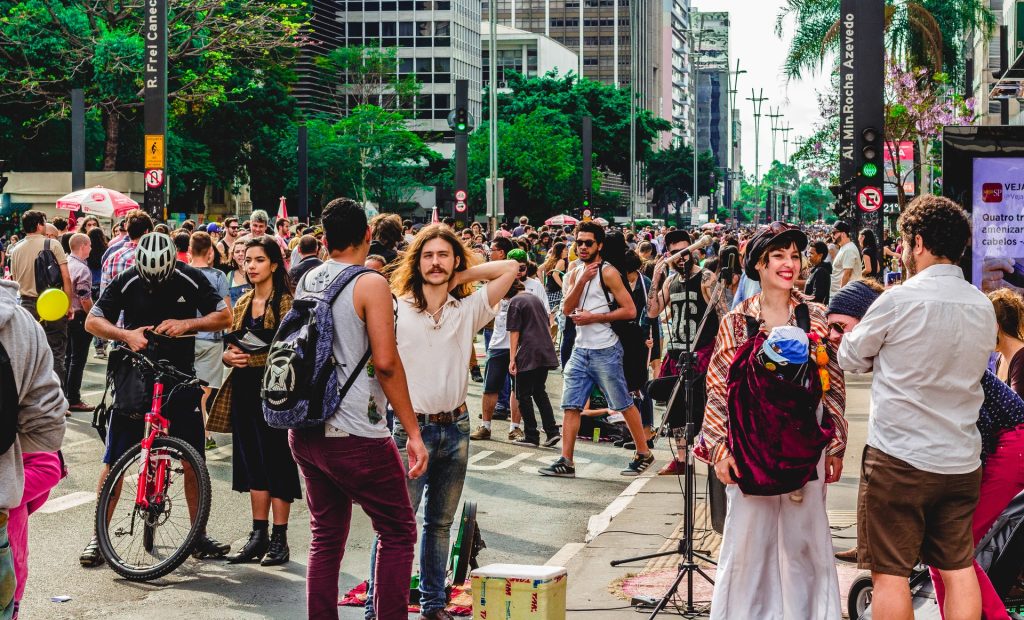Trivia: What is the spoken language of Brazil?
Answer: Portuguese


Portuguese is the official and most used language of Brazil. According to the IBGE (Brazilian Institute of Geography and Statistics), Portuguese is spoken as either a first or second language by more than 99% of the population. This language is spoken not only by Brazilians but also by people in Portugal, Angola, Mozambique, and other African countries.
All over the country, these days, you’ll notice that even though Portuguese is spoken as a first or second language, lots of Brazilians are struggling to communicate in this language. Language classes are offered to both children and adults. People will start to learn this language when they get to school and continue throughout their years in college.
Nowadays, the Portuguese spoken by Brazilians is said to be more similar to the European way of communicating than its South American counterpart. Such a difference was pointed out by Gilberto Freyre, a Brazilian sociologist, and historian who wrote about Brazil’s cultural heritage. Language influences culture and vice versa, so Brazilians cannot speak Portuguese without paying attention to how it is spoken in Portugal.
Since Brazil is a multiracial country, the Portuguese language has absorbed words from other languages spoken in Brazil. Even though it is called Brasileiro or “the Brazilian language” by linguists, native speakers call their mother tongue Português do Brasil or Língua Brasileira.
Brazilians are bilingual because they speak both Portuguese and another language. Some examples of these languages are:
- Amerindian languages, such as Nheengatu or Lingua Geral Amazônica (Amazonian General Language) and Tupi;
- African languages, such as Umbundo and Kikongo;
- Italian dialects, such as Talian or Veneto;
- Spanish, such as Calo or Lunfardo;
- English
- Asian languages, such as Japanese and Mandarin Chinese.
Brazil is a country that received immigrants from all over the world in the past centuries. The people who came here made sure to bring their language and traditions with them, not forgetting where they came from. This is why you’ll always find an Italian restaurant in the town, a Chinese store on the street corner, etc. People also like to learn foreign languages because it makes them feel more cultured and open-minded.


